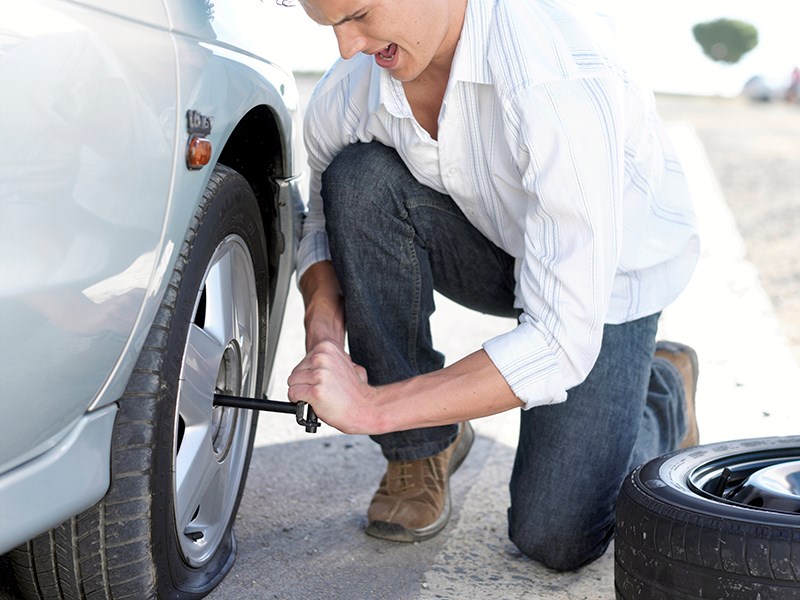With daylight saving time in effect and warmer temperatures on the way, travel plans become a focus for many families. Making sure a vehicle is ready for a road trip is an essential part of the preparation, whether the destination is a few hours away, or requires multiple days of travel to reach.
“Definitely with spring around the corner, there is all the planning that goes into long road trips, and those can be especially hard on your vehicles,” said Harvey Kooner, ICBC road safety coordinator for Powell River, Sunshine Coast, North Shore and Howe Sound. “When you’re planning for your first extended road trip of the year, you want to make sure your vehicle is up for the drive.”
As far as vehicle safety is concerned, tires are one of the most important aspects to be aware of checking on a regular basis. Tire blowouts or leaks are the most common causes of vehicle breakdowns. Every car should be equipped with a lug wrench, jack and tire iron. Inspection of tires, including tread depth and proper inflation, is a high priority, said Kooner.
“That especially includes having a spare, and making sure all tires are in good condition for the road,” said Kooner.
Timing for removal of winter tires in favour of summer or all-season replacements depends on the brand involved, temperature and road conditions. A professional should be consulted in each case for more precise information about each brand of tire.
Looking under the hood can be ominous for those not mechanically inclined, but before a trip, several areas should be checked out, whether it is handled by a professional mechanic, family member or friend.
“Check your engine oil levels and your washer fluid and lights to make sure they are in good condition,” said Kooner.
In addition to under the hood and beneath the vehicle, interior aspects should be checked as well, including making sure child seats have not expired or suffered damaged and head restraints are properly set.
“There is an expiry date on child-safety seats, so you want to make sure you look for that, especially if you are getting a hand-me-down, borrowing from a friend or using one that might have been sitting around for a while,” said Kooner.
When adjusting a head restraint, drivers should make sure it is level with the top of their head and as close to the back of their head as possible.
“You may need to adjust the back of the seat,” said Kooner. “At the same time, you want to make sure your passengers have their head restraints set properly as well.”
Keeping a basic roadside kit either in the trunk or inside the vehicle is a good idea at all times, but essential for a long road trip. Important items to have on hand in case of a minor or major roadside emergency include a first-aid kit, flares and/or a flashlight, spare fuses, jumper cables or a portable battery booster, gloves, rags and cleaner, a pen and paper, snacks and water.
To protect contents within the vehicle, and the vehicle itself, doors should be locked at all times when the vehicle is unattended. Valuables and other possessions should be placed out of sight in the trunk or carried by the driver or passengers while they are away from the vehicle.
“A lot of what we’re seeing in some communities is, at times, motorists leave their vehicles unlocked, thinking there is nothing to steal,” says Harvey. “However, for an opportunistic thief, a bunch of things you don’t think will be that valuable will be to them.”
ICBC recommends the use of anti-theft devices, which has been a requirement for all vehicles built since 2007. For vehicles manufactured prior to that date, steering wheel locks and electronic engine immobilizers are a good option for deterring thieves.
“Sometimes there is a myth out there that if you leave your vehicle open no one will take anything,” says Harvey. “You may not think of your car charger as being valuable, or loose change or sunglasses, but anything is opportunistic for a thief to pick up on, so definitely make sure your car is properly secured, don’t have things out in the open and, especially, have your vehicles locked.”



